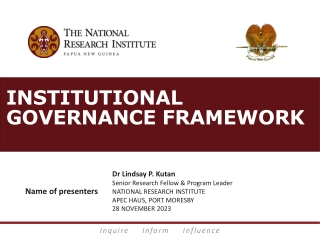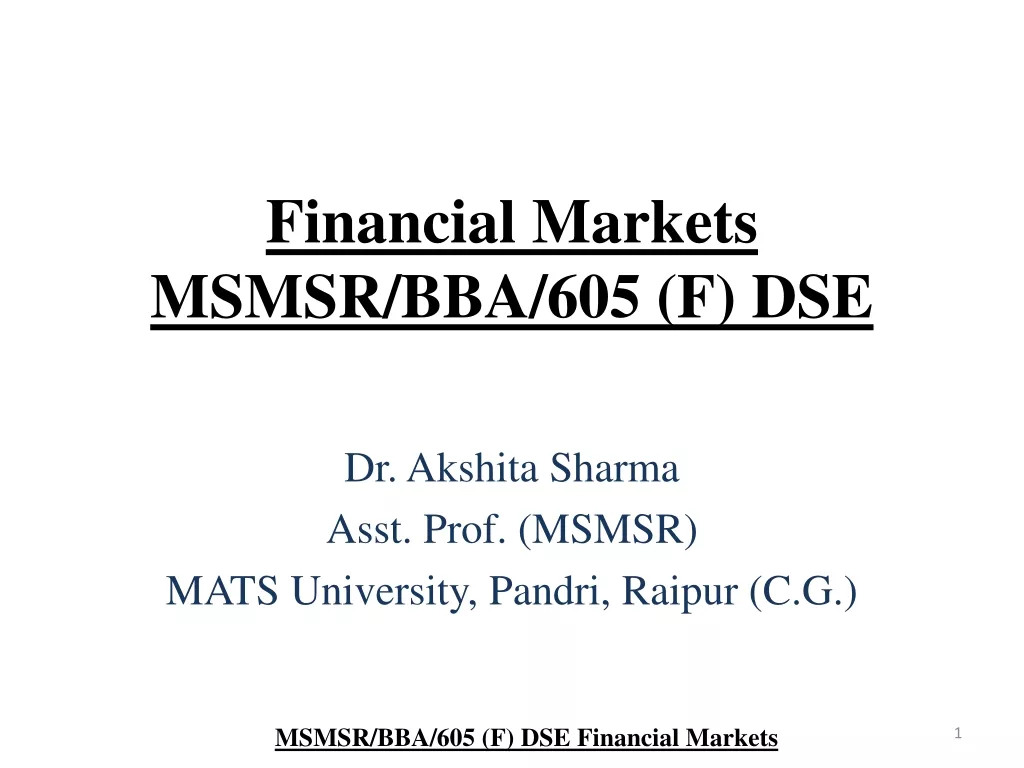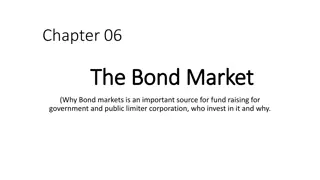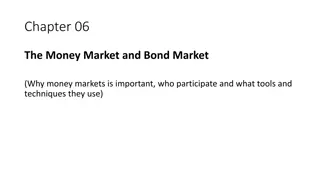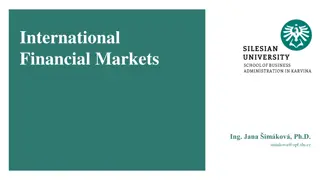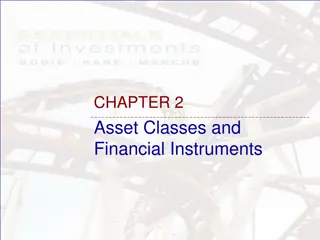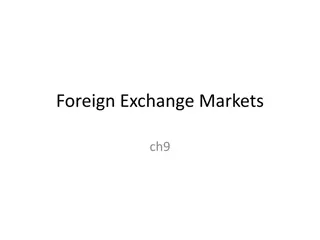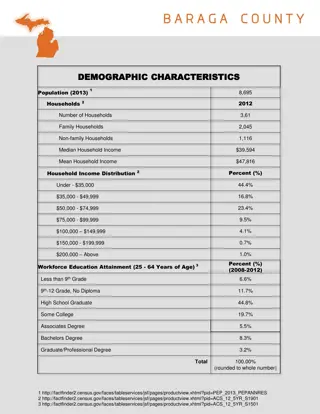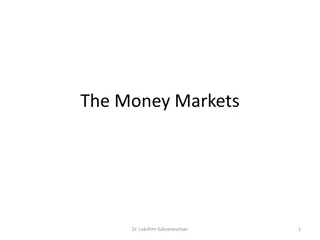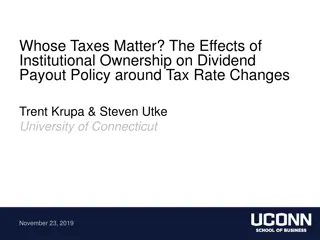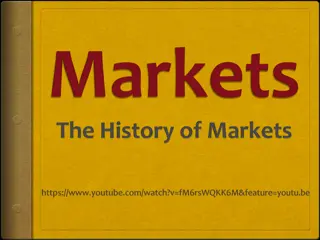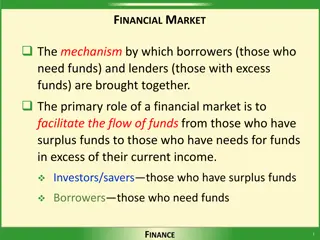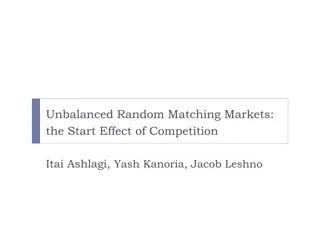Institutional and Government Markets: Key Differences and Characteristics
Encompassing organizations like schools, hospitals, and government-funded institutions, the institutional and government markets have distinct features such as specific procurement processes, strict contract monitoring, preferences to certain sellers, and a minor role of marketing. The government market, with its emphasis on transparency and public accountability, requires sellers to navigate a lengthy sales cycle and adhere to unique seller preferences. Understanding these nuances is crucial for businesses seeking to engage in government procurement.
Download Presentation

Please find below an Image/Link to download the presentation.
The content on the website is provided AS IS for your information and personal use only. It may not be sold, licensed, or shared on other websites without obtaining consent from the author.If you encounter any issues during the download, it is possible that the publisher has removed the file from their server.
You are allowed to download the files provided on this website for personal or commercial use, subject to the condition that they are used lawfully. All files are the property of their respective owners.
The content on the website is provided AS IS for your information and personal use only. It may not be sold, licensed, or shared on other websites without obtaining consent from the author.
E N D
Presentation Transcript
SRI VASAVI COLLEGE(SFW) Subject:PRINCIPLES OF MARKETING Topic:Institutional and Government Markets Staff:Ms.P.Keerthana, Assistant Professor in Commerce.
Institutional and Government Markets Institutional and government markets are often mentioned together. However, they have fundamental differences. The institutional market encompasses organizations that provide care to people or contribute to society schools, hospitals, nursing homes, and prisons. These institutions are often private and run on donations from sponsors and funds. The government market includes only government-funded institutions and makes purchases that help perform the direct functions of government. It forms the unusual characteristics of the government market. GOVERNMENT MARKET CHARACTERISTICS Specific procurement process Strict contract monitoring Preferences to certain sellers The minor role of marketing
Specific procurement process To avoid accusations of money-laundering, participants of the government market have to perform a specific procurement process. When a government institution needs to buy something, it places a public bid or request. In return, it gets a bundle of offers from sellers. The organization needs to choose among them the one that provides the lowest possible bid. Other criteria might be the company s reputation on the market or the superior quality of goods or services. Strict contract monitoring Since government institutions have to show their spending decisions to the public, they keep an eye on their contractors. The monitoring encompasses different stages of the contract execution and requires tons of paperwork from sellers. Thus, companies that work with the government often have special departments for these purposes. Long sales cycle The sales cycle of the government market often surpasses that of B2B sales cycles. Accepting bids and choosing between the offers can take several months. During the execution of a contract, bureaucracy and reconciliation also play for time.
Preferences to certain sellers Government institutions tend to prefer specific types of sellers. For instance, they often opt for domestic suppliers, even if foreigners provide better options. Moreover, government institutions may rely on non-economic reasons in decision making. They may favor depressed firms and areas, small businesses, minority-owned companies, and businesses that avoid race, gender, and age discrimination. The minor role of marketing Sellers working in the government market may reduce their marketing budget to zero. First of all, they have no need for frequent marketing activities and a robust strategy, as the procurement process does not rely on brand awareness. Secondly, saving on marketing their budget allows a business to lower the price of products. The government market may seem too complicated to work in it. However, there are a great many companies that specialize in state procurements. Let s see how they make deals.
Government Market Example The government units work both with small and large businesses. The prime demand is advanced knowledge and understanding of the government market system. Among the companies that know the rules well is Envisage Technologies a small software development firm. Envisage Technologies provides training applications and human resource management platforms for federal, state, and local organizations across the United States. The company makes more than half of its deals with the federal government.
BENEFITS OF AGMARK Farmers are befitted as the state offers more subsidies to those products that carry the mark. Marketing of the product finds a boost. The quality of the product is sustained by virtue of statutory compliances. DIFFERENCE BETWEEN FSSAI AND AGMARK The FSSAI mark is compulsory whereas, AGMARK is a voluntary certification. FSSAI licensing covers all processes of food packing and every food item, agrarian or not. AGMARK, on the other hand, is meant exclusively for agricultural products. FSSAI licensing comes under the Food Safety and Standard Act, 2006, but AGMARK comes under the Agriculture Produce (Grading and Marketing) Act of India, 1937. Other Certification Marks Issued in India ISI Mark Electric Products BIS Mark Gold Ornaments FPO Mark Fruit Processed Products Ecomark eco friendly products


